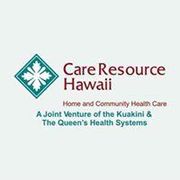
If you or a loved one transitioned from a hospital stay or rehabilitation facility or home health care plan after an injury, surgery, or illness, you might have worked with a medical social worker. These professionals work with the other members of a health care team to provide support and access to resources that aid in the patient’s physical and emotional recovery and well-being. This guide outlines how medical social workers coordinate with other medical professionals to promote the best possible health outcomes.
The Role of the Medical Social Worker
Medical social workers assist with discharge planning to help patients and their families adjust to life outside of a health care facility. They help patients navigate the billing system and understand what services their insurance covers.
 They also coordinate and plan other support services as needed, such as referring patients to a home health care agency or residential facility. The social worker will also arrange the home delivery of durable medical equipment and ensure that basic needs, such as meals and transportation, are available.
They also coordinate and plan other support services as needed, such as referring patients to a home health care agency or residential facility. The social worker will also arrange the home delivery of durable medical equipment and ensure that basic needs, such as meals and transportation, are available.
In addition to ensuring their clients’ physical needs are met, medical social workers also attend to the emotional and psychological needs of both patients and families. In some cases, they may provide support and counseling themselves, or they may coordinate care with other providers for these services. Depending on the situation, they may coordinate with grief counselors in cases of terminal illness or a catastrophic injury or psychologists for people dealing with trauma.
Medical Social Worker Training
Helping families and patients determine their next steps is a complex role, meaning medical social workers are highly trained. Most hold a master’s degree in Clinical Social Work and are licensed as social workers in their state. In Hawaii, this means completing at least 3,000 hours of supervised clinical work and passing a rigorous exam.
This training prepares medical social workers to serve patients in a variety of settings, including hospitals, home health care services, nonprofit organizations, and residential care facilities. They use their skills to help people manage significant life challenges ranging from dealing with mental health issues to coping with a terminal diagnosis or end-of-life decisions. Their goal is to help families transition out of the medical system and back to their daily lives as smoothly as possible.
If you are looking for support for a loved one after a hospital stay, turn to CareResource Hawaii for all your needs. This Honolulu-based home health care provider works with clients all over Oahu, Maui, the Big Island, and Molokai, and they’ve earned an A+ rating from the Better Business Bureau® for their personalized care. Call (808) 599-4999 to schedule services, or visit their website to learn more.
About the Business
Have a question? Ask the experts!
Send your question

